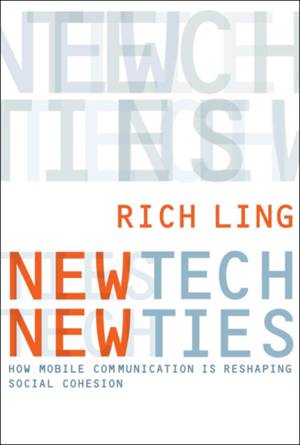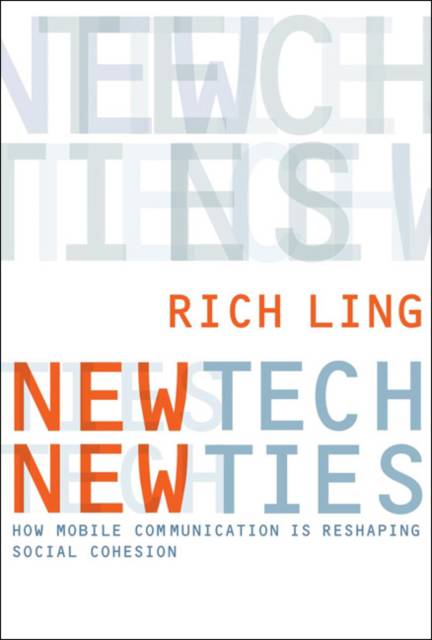
- Afhalen na 1 uur in een winkel met voorraad
- Gratis thuislevering in België vanaf € 30
- Ruim aanbod met 7 miljoen producten
- Afhalen na 1 uur in een winkel met voorraad
- Gratis thuislevering in België vanaf € 30
- Ruim aanbod met 7 miljoen producten
Omschrijving
The message of this book is simple: the mobile phone strengthens social bonds among family and friends. With a traditional land-line telephone, we place calls to a location and ask hopefully if someone is "there"; with a mobile phone, we have instant and perpetual access to friends and family regardless of where they are. But when we are engaged in these intimate conversations with absent friends, what happens to our relationship with the people who are actually in the same room with us? In New Tech, New Ties, Rich Ling examines how the mobile telephone affects both kinds of interactions--those mediated by mobile communication and those that are face to face. Ling finds that through the use of various social rituals the mobile telephone strengthens social ties within the circle of friends and family--sometimes at the expense of interaction with those who are physically present--and creates what he calls "bounded solidarity." Ling argues that mobile communication helps to engender and develop social cohesion within the family and the peer group. Drawing on the work of Emile Durkheim, Erving Goffman, and Randall Collins, Ling shows that ritual interaction is a catalyst for the development of social bonding. From this perspective, he examines how mobile communication affects face-to-face ritual situations and how ritual is used in interaction mediated by mobile communication. He looks at the evidence, including interviews and observations from around the world, that documents the effect of mobile communication on social bonding and also examines some of the other possibly problematic issues raised by tighter social cohesion in small groups.
Specificaties
Betrokkenen
- Auteur(s):
- Uitgeverij:
Inhoud
- Aantal bladzijden:
- 244
- Taal:
- Engels
- Reeks:
Eigenschappen
- Productcode (EAN):
- 9780262515047
- Verschijningsdatum:
- 24/09/2010
- Uitvoering:
- Paperback
- Formaat:
- Trade paperback (VS)
- Afmetingen:
- 142 mm x 221 mm
- Gewicht:
- 294 g

Alleen bij Standaard Boekhandel
Beoordelingen
We publiceren alleen reviews die voldoen aan de voorwaarden voor reviews. Bekijk onze voorwaarden voor reviews.











